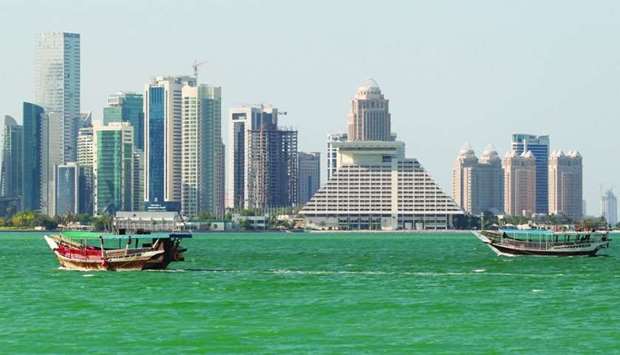*A joint report by World Bank Group and the World Economic Forum also lauds Qatar for regulatory quality and political stability
Qatar has "relatively high scores" in government effectiveness, political stability, and regulatory quality, according to a report jointly prepared by the World Bank Group and the World Economic Forum.
This is in addition to Qatar being the “second-most competitive economy in the Arab world, and 25th globally”.
Qatar’s macroeconomic environment also remains solid at 20th globally and 1st in the region.
The Arab world governance scores, as measured by the Worldwide Governance Indicators, are fair at best compared to other regions and show particular weaknesses in political stability and voice and accountability. Regulatory quality and control of corruption are below average as well, but to a lesser extent.
Government effectiveness and rule of law are relative strengths, although they are at levels lower than in many other regions.
There is, however, a substantial amount of variation in institutional quality within the Arab world, the report said.
Besides significant weakness in voice and accountability, governance is slightly better in resource-rich countries along the other five dimensions of the indicators.
Governance affects diversification through multiple direct and indirect channels, the report noted.
Citing the International Monetary Fund (IMF) it said, “Institutional quality is found to be positively associated with the product quality, likely because sound institutional frameworks encourage investments needed for process and product upgrading.”
Institutional frameworks can affect a broad range of factors that influence a country’s level of diversification.”
The World Economic Forum’s Global Competitiveness Index’s measure of institutional quality, for example, correlates strongly with numerous factors that support diversification discussed in subsequent sections of this chapter, such as innovation, higher education and training, technological readiness, and financial market development.
Disaggregating institutions into their constituent parts can help clarify the links between governance and diversification, the report said.
The Worldwide Governance Indicators, for example, divide governance into six dimensions: Government capacity, regulatory quality, extent of corruption, degree of adherence to the rule of law, political stability, and extent of citizen participation in government.
Political instability and weak adherence to the rule of law are deterrents to diversification, and especially to innovation, because they adversely affect investment. For example, businesses are unlikely to invest in developing new products or production processes if they are uncertain they will be able to benefit from them.
Likewise, a poorly functioning legal system impedes technology transfer.
Regulatory quality also impacts investment. For example, weak regulatory environments may limit the degree of competition between firms, lead to a risk-averse financial sector, and permit lax enforcement of product standards.
Along the same lines, the report said “weak government capacity is likely to lead to poor quality infrastructure and education. Where relevant, subsequent subsections of this chapter draw attention to these linkages.”

